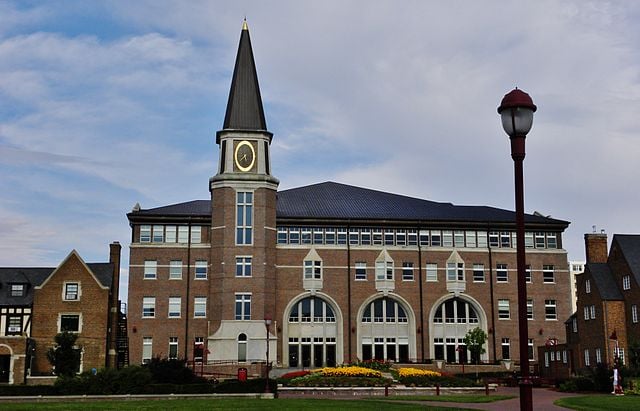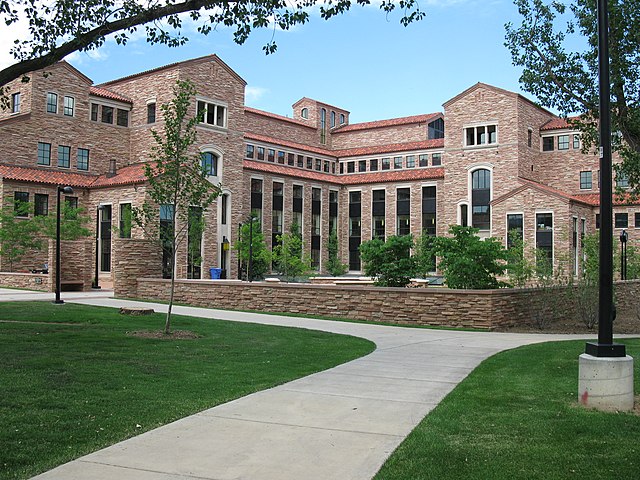Colorado is best known for its natural beauty, resort towns, the Rocky Mountains, and seemingly endless nature trails. Many people do not know that it is home to several premier institutions of higher education, including two nationally reputable law programs.
Choosing a law school can seem like an overwhelming prospect. There are many factors to consider and many places from which to choose. A school’s rankings can be a useful guide and are indicative of the overall quality of a program. The schools on this list were selected primarily on the basis of their rankings on the latest edition of US News & World Report’s “Best Law Schools” and best specialty programs. Their post-graduation employment statistics are among the highest in the nation.
However, rankings and statistics do not tell the whole story. For one, numbers do not tell a prospective student whether a specific school is the best fit for them or not. Different programs have different strengths and vary in their offerings. Someone aspiring to work in environmental law may not have much use for a school whose strengths primarily lie in intellectual property law and family law.
For these reasons and more, the schools on this were also selected for their first-class faculty and the range and quality of their opportunities in terms of legal clinics, externships, and other forms of experiential education.
Here is our guide to the best law schools in Colorado.
2. University of Denver Sturm College of Law (Denver, CO)

The University of Denver Sturm College of Law is the only law school located in the state’s capital city. Its location gives it a distinct advantage since Denver, the “Mile High City,” is one of the fastest-growing cities in the nation. A fast-growing city is usually synonymous with a dynamic and booming economy, which is excellent news in terms of employment prospects. Denver is the business, tech, and social hub of the state, as well as the home of numerous state and federal agencies.
Within the city of Denver is Sturm College of Law, a reputable institution. Its clinical programs, legal writing curriculum, and trial advocacy program are among the highest ranking in the nation. All rank within the top 20 in the latest edition of the US News & World Report. Both its full-time and part-time programs are also top-notch.
Because practical skills are the highest priority, Sturm students are practice-ready by the time they graduate. They gain skills and experience through a variety of high-quality, live-client clinics. In 2020, for example, student attorneys in the Civil Litigation Law Clinic litigated cases that spanned numerous issues and areas of law, from civil protection, family law, to wage theft.
Students also collaborated with the Direct Action Team on issues involving wage theft. Under the supervision and direction of Kevin Lynch, a nationally renowned expert in environmental and natural resources law, students in the Environmental Law Clinic worked with clients to evaluate a proposed dam location in a Colorado wilderness area. These are just two among many examples of Denver Law students and faculty making an impact in the community through the clinical program.
The clinical program is one aspect of the robust experiential education students receive at Sturm College of Law. The school is also known for its extensive and effective externship program. Under the guidance of a faculty advisor and field supervisor, students get real-world, off-site experience.
Students can choose their externships based on a specialty that piques their interest. These specialty programs differ from regular externships in that students are required to enroll in a subject-specific seminar pertaining to the specialty.
In 2020, 92% of Denver Law graduates had completed at least one externship credit, entering the real world with stellar lawyering skills refined through experience. Overall, Denver Law boasts over 500 externship, internship, and in-house clinic offerings every year.
No law school profile is complete with mentioning the accomplishments of its faculty. Denver Law faculty are highly prolific scholars in their fields and have published through top academic publishing houses, such as Oxford University Press, and in internationally peer-reviewed journals, such as the American Business Law Journal. The school’s most recent ranking evidences the wide-ranging contributions of the Denver Law faculty in the Sisk Scholarly Impact study, which measures impact by citation count. The school ranked #64, its highest ever!
With top programs in practical skills, world-class faculty, and an excellent location replete with myriad opportunities, Denver Law equips its students with the skills, experience, and tools they need to succeed in life after graduation. Indeed, its graduates have done very well in the job market. The employment rate for the J.D. class of 2019 was an exceptionally high 94%. That is, close to 100% of graduates were employed in a professional capacity within a year of graduating. A majority landed jobs with law firms, businesses, public interest organizations, and government entities.
1. University of Colorado Law School (Boulder, CO)

When people think of Boulder, they think of thousands of acres of open space, nature trails, and seemingly endless days of sunshine. It has earned high marks for quality of life, art, and well-belong. Its academic institutions do not immediately pop into mind, but it has received high rankings in this area as well. Boulder is home to the largest university in the state, the University of Colorado. Its law school, Colorado Law, is a glittering gem and the top law school in the state.
The University of Colorado Law School pairs a traditional legal curriculum with a robust experiential learning program, consisting of externships, legal clinics, and public service opportunities. Students can choose from nine legal clinics, which provide free services to community members and provide students a chance to handle real-life cases.
The American Indian Law Clinic is one of the first of its kind in the nation. Under faculty supervision, students gain experience in assisting in various tribal matters, including sovereignty, employment discrimination, preservation of tribal lands, and many more. Students interested in environmental law can hone their skills through the Getches-Green Natural Resources, Energy, and Environmental Law Clinic, or engage in community development projects through the Sustainable Community Development Clinic. As a side note, the Environmental Law program is #10 in the nation, according to the US News & World Report.
Overall, the legal clinics are underpinned by a commitment to social responsibility and consciousness, training students to become compassionate layers who make a real difference in the world. Students must perform at least 50 hours of pro bono work before they don the cap and gown, which underscores the school’s commitment to civic engagement.
Colorado Law’s areas of study and programs are as varied as its clinics. Students can take courses in American Indian Law, Dispute Resolution, Technology and Property Law, and much more. Courses are taught by first-class faculty on the cutting edge of legal scholarship and practice.
One notable professor is James Anaya, who is the current dean of Colorado Law and has published extensively on indigenous peoples’ rights and freedoms, including a book entitled Indigenous Peoples in International Law, which was published by the esteemed Oxford University Press.
The Silicon Flatirons Center is the school’s premier interdisciplinary research center for law, technology, and entrepreneurship. The center’s mission is to foster critical conversations about issues concerning technology, including telehealth and telework in the current workplace. Finally, the Silicon Flatiron Center provides volunteer and internship opportunities for students wanting to specialize in technology law, including clinical experiences, in collaboration with the Entrepreneurial Law Clinic and Technology & Law Clinic.
Colorado Law students have fantastic employment prospects. Roughly 89% of graduates from the class of 2020 were employed within ten months of graduation. Around 79% reported full-time employment in a position that required bar passage and in which a J.D. was a desired qualification. In recent years, the mean salary for graduates employed in private practice has been $97k and the median public sector salary has been $56k.
The school has been ranked by US News & World Report as #48 among law schools nationwide.These stats are bound to attract the most stellar and promising applicants from around the country. In fact, admission into Colorado Law is very competitive. Only 33% of applicants were admitted in 2020. The applicant pool has become increasingly competitive, with the latest class of matriculated students boasting a GPA average of 3.71 and an average LSAT score of 162.














